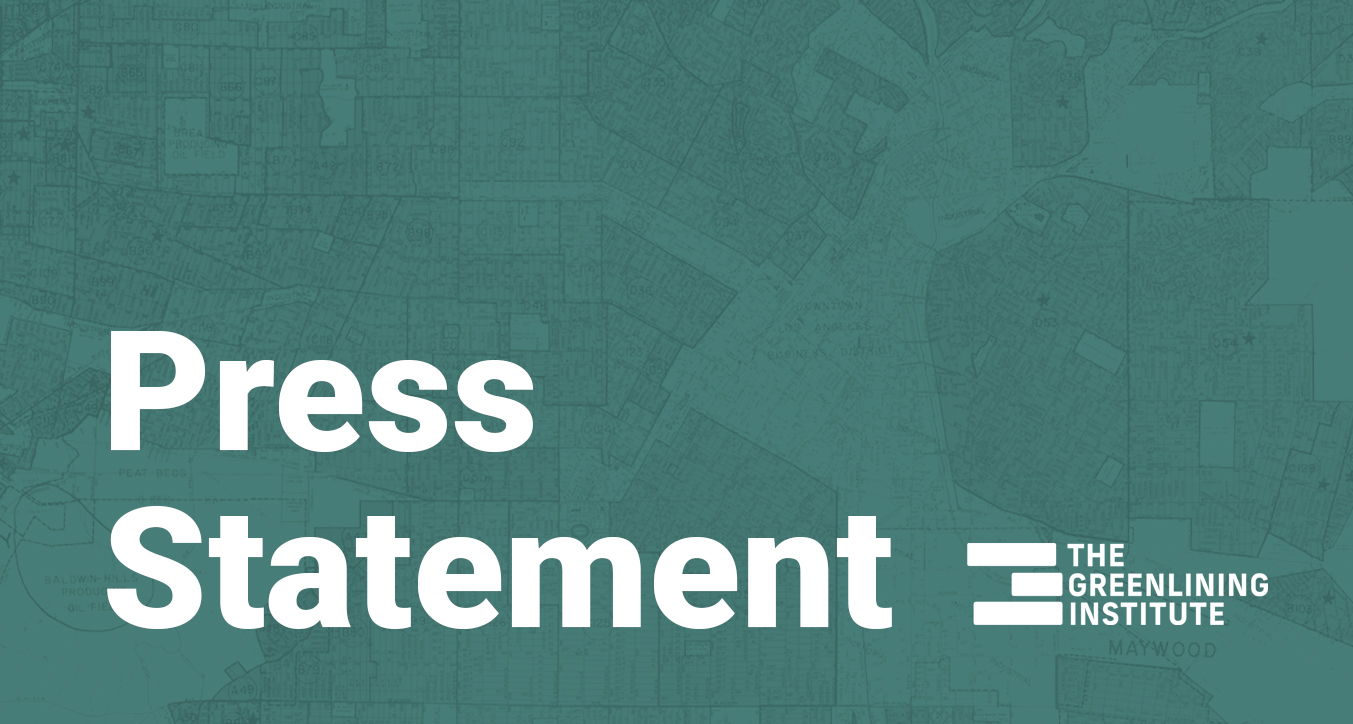2023-24 California Budget May Revise: It’s time to reimagine one of the world’s largest economies

Media Contact
Danielle Bell
SENIOR PROGRAM MANAGER FOR MEDIA RELATIONS
media@greenlining.org danielle.bell@greenlining.orgGovernor Newsom outlines a revised CA budget reflecting a massive deficit–a far cry from last year’s historic surplus
Californians can’t afford to lose key equity investments during difficult budget years
(Oakland, CA) — On Friday, Governor Newsom released the May Revision of his 2023-24 California Budget proposal. The proposal included cuts and rollbacks to equity programs and investments, reflecting California’s $31.5 billion budget deficit.
MAY REVISE KEY TAKEAWAYS
- Utility Debt Relief: The May Revise cuts nearly $550 million from the California Arrearage Payment Program. This is an additional cut of $149.4 million from the Governor’s January budget proposal.
- Housing: Funding for housing programs remains at approximately 88 percent of the allocations made in 2022-23 and proposed for 2023-24 ($2.85 billion). As proposed in the Governor’s January budget, if there is sufficient money in the General Fund in January 2024, $350 million of these reductions will be restored. The May Revise also maintains $3.7 billion in funding proposed for homelessness programs.
- Climate Resilience: Additional $1.1 billion in General Fund shifts across climate resilience programs. These programs will be included as part of the future climate bond proposal. Specific shifts to the bond for out year funding include $160 million for Community Resilience Centers and $100 million for Transformative Climate Communities.
- Transportation: The May Revise maintains $8.9 billion (89 percent) in investments for the state’s ZEV Package, and shifts $635 million General Fund ($500 million in 2023-24) over three years to the Greenhouse Gas Reduction Fund. The May Revise includes a reduction of $2.85 billion General Fund, partially offset by $650 million of new state transportation funds for a net reduction of $2.2 billion, maintaining a total of $12.8 billion in continuing new transportation infrastructure investments.
Statement from Alvaro Sanchez, Vice President of Policy, The Greenlining Institute:
Citing national financial instability and fiscal uncertainty in California, Governor Newsom aims for stability over deeper investment in equity with his May Revise Budget proposal. But what are the impacts on communities of color and low-income communities that are hit hardest by these economic headwinds? While these cuts may be necessary due to budgetary restraints, we must call this what it is—a setback in California’s efforts to build a more equitable economy.
While we are pleased to see commitments on housing and homelessness, healthcare, and education remain a priority of our state, we are deeply disappointed to see the Governor’s May Revise proposal reverts the full amount committed to utility debt relief back to the General Fund, leaving families literally in the dark. The fact is, we need comprehensive solutions that address the myriad economic pressures our communities face.
Further, we can’t continue to rely on inconsistent funding to drive critical equity programs, particularly when it comes to fighting climate disasters in communities hit hardest by climate change. The May Revise counts on a future bond measure to fund climate initiatives, meaning that the future success of programs like Transformative Climate Communities and Community Resilience Centers are contingent on the successful approval of a bond measure by California voters. While we agree that the state must secure ongoing funding for housing and climate investments, we urge state leaders to explore progressive and more sophisticated funding mechanisms.
The Governor and Legislature must work together to identify long-term, consistent, and reliable funding sources for our most pressing problems, including housing, health care, education, and climate change. And California must do a better job ensuring that we secure stable state revenue in an equitable manner.
The Greenlining Institute looks forward to working with the Governor’s office and California Legislators to pass an equitable budget that puts California’s most vulnerable families first. Together, we can advance policies that create a more just and prosperous future for all the state’s residents, particularly those in communities of color who have been historically marginalized and excluded from the benefits of California’s economic growth. Transformative change is possible. We just need the political will to achieve it.



